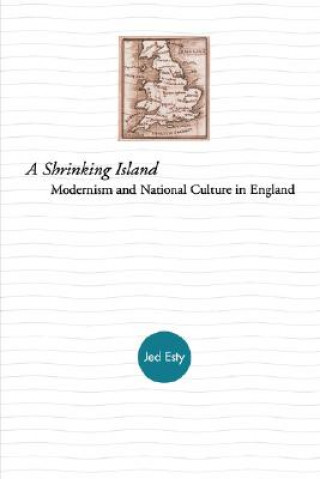
Doručenie
Nákupný poradca





Nehodí sa? Žiadny problém! U nás môžete do 30 dní vrátiť
 Darčekový poukaz
v ľubovoľnej hodnote
Darčekový poukaz
v ľubovoľnej hodnote
S darčekovým poukazom nešliapnete vedľa. Obdarovaný si za darčekový poukaz môže vybrať čokoľvek z našej ponuky.
Shrinking Island
 Angličtina
Angličtina
 132 b
132 b
30 dní na vrátenie tovaru
Mohlo by vás tiež zaujímať


This book describes a major literary culture caught in the act of becoming minor. In 1939, Virginia Woolf wrote in her diary, "Civilisation has shrunk." Her words captured not only the onset of World War II, but also a longer-term reversal of national fortune. The first comprehensive account of modernism and imperialism in England, "A Shrinking Island" tracks the joint eclipse of modernist aesthetics and British power from the literary experiments of the 1930s through the rise of cultural studies in the 1950s. Jed Esty explores the effects of declining empire on modernist form - and on the very meaning of Englishness. He ranges from canonical figures (T. S. Eliot and Virginia Woolf) to influential midcentury intellectuals (J. M. Keynes and J.R.R. Tolkien), from cultural studies pioneers (Raymond Williams and E. P. Thompson) to postwar migrant writers (George Lamming and Doris Lessing).Focusing on writing that converts the potential energy of the contracting British state into the language of insular integrity, he argues that an anthropological ethos of cultural holism came home to roost in late-imperial England. Esty's interpretation challenges popular myths about the death of English literature. It portrays the survivors of the modernist generation not as aesthetic dinosaurs, but as participants in the transition from empire to welfare state, from metropolitan art to national culture. Mixing literary criticism with postcolonial theory, his account of London modernism's end-stages and after-lives provides a fresh take on major works while redrawing the lines between modernism and postmodernism.
Informácie o knihe
 Angličtina
Angličtina
Kategórie




 Ako nakupovať
Ako nakupovať























